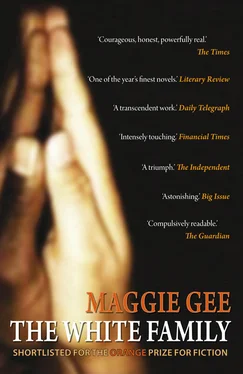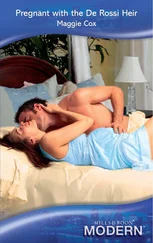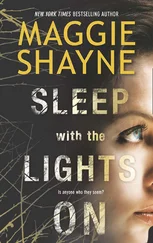He tried to straighten up. He was on a mission. Carrying essential information .
He was walking through familiar country now, not enemy country, his own dear land, but he knew that he was in very great danger, perhaps the worst danger he had ever known. There were enemies everywhere, hiding, dodging, nurses, doctors, treacherous women.
Maybe he had enemies now at Brent council. Enemies, now, among his own men.
And then there was the enemy within. The queer changes within his own body. The false cells creeping, weakening him (but he would not weaken; he would never weaken. He’d keep going by will-power till his mission was done.)
In any case, he needn’t believe the doctors. Perhaps they had said it to bring him down. Black propaganda, he told himself. Alfred wasn’t born yesterday.
He went straight as a die down All Souls’ Road. The street-lights were still on, but the sky was flecked with pink, the sky, he thought, he was back beneath the sky, the sky he had lived under most of his life, back outside, where a man should be, it was no kind of life, cooped up inside, he could never have worked all his life in an office –
So must I die in a hospital?
No, he thought, I’m going home.
I’ve had a good life. A life in the open. I have been lucky. I can’t complain …
These streets hadn’t changed since he was a boy, the little terraces, neat and tidy, six or eight of them joined together, sometimes a whole long street of houses, sleeping, now, dark, immobile, the line of the roofs like a long low backbone. We’re tough, round here, he thought, we survive. We’ve lived through a lot, the people of Hillesden. Those of us who made it through the war. Those of us who stayed the course.
Here was the pub they always drank in. Always known it, since he was sixteen. He and George still went to the Admiral Nelson of an evening. And every Sunday while the lunch was cooking. It had been modernized badly, ten years ago, a box-like, ugly front added on and a glaring plastic sign, which had bust, only lasted three weeks or so before it bust, but the two of them kept on drinking there, it was people that mattered, not bloomin’ designers. Wankers. Nancy-boys. What did they know? And underneath, you could see the old building, the old red brick of it wearing through.
He stood and watched, briefly, as the light increased. Remembering, remembering. He and George. So many good evenings. Would he ever walk in through the door again, cheerful, mouth watering for the cool of the beer, his week’s work done, money in his pocket? Thank you, he thought, my friends, mine host. Thank you for standing at the bar with me. (For when all’s said and done, a man needed friends, and however much he loved her, May was a woman.) Goodnight, all. Toodle-oo, goodbye.
But he mustn’t hang about. He had to get on. It was harder than before, getting started again, as if his limbs had lost some essential information, as if the morning air had grown colder, as if part of his lungs was dead, frozen … But of course it was cold, out here in the desert, what did they expect, what was the point of moaning, had they forgotten the blaze of midday in Palestine, when the sun was highest, when they were young, in the bright blue heat, the lords of creation — had they forgotten the larks, the fun? If he paid for it now, he would never complain.
(Poor Dirk, he thought, poor boy, poor child, he never played sport, never fought, never travelled — never had a girlfriend, or a decent job … The young today, there was nothing for them. And the other lad, too. He was only twenty. And his name was Winston, like Winston Churchill. My fault, my fault. But he had to keep going.)
The houses he was passing were about as old as he was, 1920s, 1930s, the same three windows, the same front door, the little side window with modest stained glass — a bit fussy, he’d thought, when he and May bought theirs, a bit old-womanish, though May had liked it, and he had replaced the door with aluminium, and later regretted it, but never said so — never admitted as much to May.
I’m sorry, May , he thought, suddenly. For all the times I never said sorry. I am a proud man. It doesn’t come easy.
I’m sorry, May. I shall cause you grief. All our life together, I’ve caused you grief, though sometimes I think I made you happy — Sometimes I know I made you happy. But now I have to cause you grief.
And a quiet voice, May’s voice, spoke in his ear. Please, Alfred. If you love me at all. Don’t be pig-headed. You were always pig-headed. You don’t have to do this, Alfred, please.
But he brushed her aside; he kept on walking, though one of his feet had begun to drag, he was picking them up at the old steady pace but parts of his body weren’t quite working. It didn’t matter. Most of him was. He kept on going as the sun rose.
Because in the end, there’s right and wrong. He argued with her; she had to understand. You and I don’t matter (she mattered so much. Nothing mattered as much as his own dear wife. His own dear woman.) But you see, we’re just little … We’ll die, in the end, and the mess will be left. I must do my best.
It rose above the houses, glorious, a ball of fire, a ball of red. So bright, so strong, how do we bear it? All that glory over our heads. He kept a weather eye for enemy planes, but the ones that streaked over this morning hadn’t seen him, they curved round steeply into the dawn, ploughing a track of fine pink foam.
I always meant to take May on a plane. Now I suppose I shan’t manage it. May deserved to fly on a plane.
He’d been walking, for a bit, on automatic pilot, so it was with a surge of shock and sorrow that he realized he was limping down his own road, the long narrow road to his own dear home, and there it was, in the first rays of the sun, sleeping, still, but touched with gold, its rough white walls, the pale pebble-dash he’d put on to cover the faults in the brickwork, the curtains closed, and hidden behind them …
She would be sleeping. She would be there, curled on her left side, rosy, comfy. Not fifty yards away, now, not thirty …
And the boy. His boy. The child. His child. His youngest child, whose life had gone wrong. I’m sorry, Dirk, he thought, I’m sorry.
Ten yards. Five. The gate was half-open, why couldn’t they shut it, the dogs would get in? He laid his hand on the iron of his gate, his own front gate, and he felt the cold, the cold came shuddering through to his bones, in the early light he was blue with cold, his old man’s hand with the raised blue veins, and the whitewashed body of the house still beckoned, how warm it would be, how welcoming, how easy just to walk up the path and ring on the door and slip inside, and no harm would be done, he would have harmed no one –
Quick march, he told himself. At the double. He pushed the gate shut, to keep them safe.
Now every step had become an effort, every step was an effort of will. Not far now. At most, a mile. Around him, the world was waking up, curtains were twitching, the postman passed him, gave him a smile that he tried to return, if he’d had the strength Alfred would have saluted, both of them were servants of the people, both of them took pride in their uniform — and then he remembered, the uniform was gone, gone years ago. He stood there in pyjamas. It didn’t matter. His greatcoat protected him. He wandered on, feeling his step become more ragged, one of his boots was bothering him, rubbing at his ankle, the rats gnawing, he kicked at them to scare them away and nearly fell, Get on with it, man –
He saw the building at the end of the road. It was a big modern station like an army barracks. The officers he had to reach were in there. Carrying essential information … They were good men, good men and true, they would come to the Park whenever he called them.
Читать дальше












